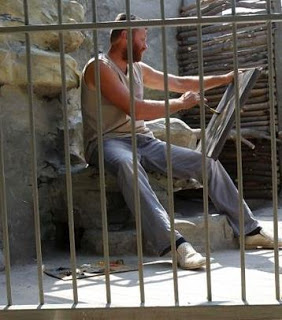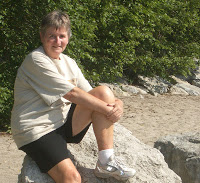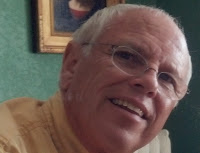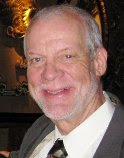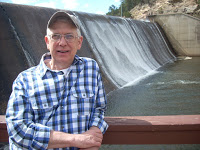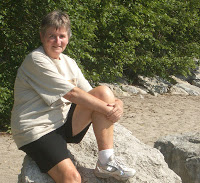I really want to thank whoever came up with this topic because it made me dig way down in my memory and dredge up a story I have not thought about for fifty years. I wasn’t sure I had ever actually heard anyone use the expression aw shucks, except possibly Andy Griffith in 1950s Mayberry, but then slowly it bubbled up in my brain; an old black man in Houston in early 1965, and the story that goes with him.
His name was Noah. His age was indeterminate but my best guess would be mid-seventies. He worked as the gardener at the apartment complex where I was living with my friend Lucie. We had only arrived in this country from England three months before and were not quite familiar with all of the U.S. mores, especially those of the South. Houston of the early 1960’s was apparently unaware of such things as a minimum wage and equal rights. As far as we could tell, we were the only people among the apartment complex’s all-whites residents who ever spoke to Noah. He was apparently invisible to all our neighbors. Lucie and I managed to converse with him on most days, complimenting him most sincerely on the crisply trimmed bushes and the gorgeously colorful arrays of flowers, and his reply was always more or less the same.
“Shucks, Ma’am, just doin’ mah job.”
I would love to report here that he said aw shucks but I honestly remember it being, more simply, shucks. He had offered that his name was Noah, but although we had told him our names, he invariably addressed us, whether singly or collectively, as Ma’am.
And clearly it was more than just doing his job. He loved those plants. He coaxed and gentled them along, and they responded to him in all their glory.
I was in awe of him. He always looked so pristine. His gray hair was neatly barbered, the white tee-shirts he wore were unfailingly spotless, at least at the start of his day, and his bib overhauls always clean and crisp with a sharply ironed crease.
He had such a quiet dignity about him, giving off an air of a soul at peace, that I found myself envying him. Yet he puzzled me. I wondered about his life, the details of which he firmly shied away from if we tried to question him. Born …. when? Late in the previous century, perhaps. The things he must have seen and heard and experienced were unlikely to be the kind that would, in most people, engender this aura of dignified tranquility.
One day, just as we arrived home from work, a group of rowdy young men, white of course, were running across the lawn, whooping and giving their best rebel yells while tossing a football back and forth and tossing back beer from cans. They shouted derogatory things at two young women, also white of course, who quickly turned away down another path. Noah, trimming bushes at the far side of the lawn, was almost hidden by the thick foliage, and as the men crashed through the bushes they knocked him to the ground. Lucie and I could see him, slowly sitting up, and ran over, rather wondering how to act. We wanted to show concern but knew that offering to help him up would only cause embarrassment.
“Bloody hooligans!” Lucie growled as we reached him.
“Aw shucks, Ma’am, they wasn’t meanin’ no harm. Ma’am, do y’all see my glasses?”
He was fumbling his fingers in the grass about him.
“Huh!” responded Lucie. “Not meaning any harm indeed. They didn’t stop to see you were OK though, did they?”
Noah gazed speculatively at Lucie. and it occurred to me that perhaps concern for his health and safety was the last thing that life had taught him to expect from a group such as that.
“Here,” I handed him the glasses from where I found them still suspended on the branch that had snagged them as he fell. They were small and thick with thin steel frames, and looked more fit for a German scientist than an old black Texas groundsman. Noah curled them behind his ears and got to his feet, but he was favoring one foot.
“Stand still!” commanded Lucie. “Let me look at it.”
She knelt down and pulled up his pant leg, feeling his ankle gently. I could see it was already swollen.
Three white men in business suits just getting out of a car in the parking lot looked askance at the young white woman kneeling before the old black man and caressing his ankle. The N word was tossed back and forth loudly between two of them but the third walked over to us, just as I unthinking put my arm around Noah’s waist so he could lean his bad side on me.
The young man, I had met him briefly at some pool party or something, and thought his name was Howard, pried me gently away from Noah, frowning at me and shaking his head.
“Here, let me he’p you” he said, taking my place. “Can you put weight on that foot?”
“No, he can’t,” snapped Lucie before Noah had time to insist he was OK and they hadn’t meant no harm.
“It’s not broken,” Lucie always said things with supreme confidence, “but it’s badly sprained.” She launched into an indignant account of what had happened, while Howard lowered Noah back down onto the lawn and I trotted off to our apartment to get ice and look for bandages.
We bound up his ankle with a strip I had torn off an old shirt we planned to use for dusters, then tied ice over it, securing it with the rest of the shirt.
Howard helped Noah to his feet, but putting weight on his badly swollen ankle was clearly a problem.
“C’mon,” said the ever-decisive Lucy, “We’ll take you home.”
A look of alarm crossed his face.
“No Ma’am! I come on the bus, I go home on the bus.”
Lucie snorted.
“Don’t be ridiculous! It’s five or six blocks to the bus stop just from this side. You can’t walk. Of course we’ll take you home.”
Noah’s look of alarm became one closer to fear.
He glanced in appeal at Howard, a look that said, these women are foreigners and don’t understand. Help me!
“I live th’other side of Lazy Bayou,” he offered to Howard in a tone of desperation. “Lizard Creek Muddy.”
Howard shook his head at Lucie and me.
“NO!” he said, firmly. “Y’all cannot go there.”
Never tell Lucie she cannot do something. She tossed her hair at both men in disdain.
“Ugh. Men! C’mon.” She headed for the car as I followed behind, fumbling to find the car keys.
Howard and Noah struggled in some kind of three-legged gait behind us, neither apparently able to come up with a reasonable alternative course of action.
“I’ll come with you, then,” said Howard resignedly, helping Noah into the front passenger seat, and I slipped the car into gear as Noah offered grunted, reluctant, directions.
I had no idea where we were by the time we sloshed over a muddy crossing of what must have been Lazy Bayou, and followed the dirt road as it disappeared into thick trees. The road was suddenly lined on either side by wooden shanties in various stages of disrepair, and an occasional tattered trailer. Everyone in sight was black, and every single one of them stopped whatever they were doing to stare at the car, and, perhaps more than the unaccustomed car, the three shiny white faces in it. If any of you have watched that old TV series, Heat of the Night, this place was very like the area that program depicts as The Bottoms.
But this was well before that series existed; Lucie and I, innocents that we were, had no idea places like this existed.
Following a silent wave of Noah’s arm, I pulled the car to a halt in front of rickety steps below a screen door. I heard Howard mutter in the back seat.
“Goddammit!”
I knew he referred to the steps.
“Y’all he’p him. Less antagonism that way. An’ git right back. We need to go!”
An old woman with a deeply wrinkles face was creaking down the steps. She pushed Lucie and me out of the way, turned her back on us, turned Noah’s back on us, and hustled him up the steps and in through the screen door which slammed shut behind them. Despite Howard’s hissed,
“Come on!” we stood there, non-plussed. We hadn’t exactly expected to be invited in for tea, but neither had we expected a look that might have turned lesser mortals to stone. In silence the three white faces in the black car left Lizard Creek Muddy.
Our relationship with Noah, though his courteous dignity remained, was never quite the same after that. His dignity had become cool and distanced, like that of an English butler. We had crossed some invisible line we had not even known existed.
I think of that wonderful old man after all these years, as I read of the recently documented 4000 lynchings of people of color in the South from 1877 to 1950, the racial hatred in certain fraternities, the institutionalized racism in Ferguson ……. sadly I could go on and on.
I need to say something a whole lot stronger than aw, shucks!
© March 2015
About the Author
I was born and raised in England. After graduation from college there, I moved to the U.S. and, having discovered Colorado, never left. I have lived in the Denver-Boulder area since 1965, working for 30 years at IBM. I married, raised four stepchildren, then got divorced after finally, in my forties, accepting myself as a lesbian. I have now been with my wonderful partner Betsy for 25 years.

